#John Thurso
Explore tagged Tumblr posts
Text
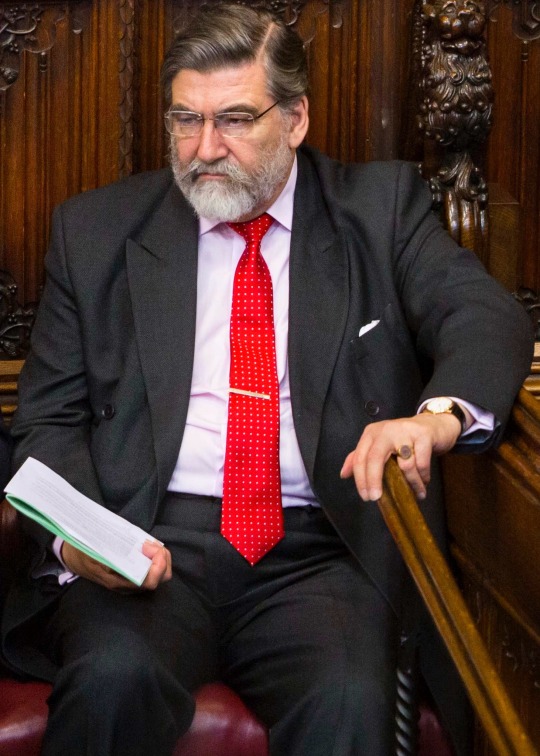
John Thurso
#suitdaddy#suiteddaddy#suit and tie#suited grandpa#suitedman#suit daddy#suitfetish#suit bulge#daddy bear#buisness suit#suitedmen#british man#british men#member of parliament#house of lords#liberal democrats#buisnessman#Scottish man#Scottish men#John Thurso
33 notes
·
View notes
Text

John Thurso
10 notes
·
View notes
Text
So, regarding my cycling/camping/wild-camping trip to Orkney. I'm currently drafting this in Brown's Hostel, Stromness... going to catch the 6:30 ferry tomorrow morning and back to bleak reality.
gonna be breaking the trip's brief account into parts due to the restraint of number of pictures i can put into each post. will post it as i write it so i can assemble a master post...
I got the idea of cycling/wild camping from a lady who did this in the hebrides in her youth which was in the 70s, 80s. Got the idea of going to Orkney from well, the lost Franklin expedition, another lady who's been going to Orkney almost every year for the past few decades or so, and being handed a card abt the orkney storytelling centre. So handed in my dissertation, moved, bought a second hand bike, strapped my gear onto it, was terrified for a bit there and didn't research much until the last minute, but thought if I didn't go then I ain't never going.
part 1
day 1
my poor bike at waverly.
I was doing a bit of an experiment, so instead of my summer sleeping bag I brought a heavy army surplus wool blanket instead. I wanted to see what it feels like to sleep in blankets. The conclusion is it's fine as long as the temperature is above 9 degrees celsius. But my insulation mattress is leaky so had to get up every three hours to reinflate it. Apart from that, with a bit of help from the sudden balmy weather that graced this part of Scotland, I was mostly warm enough.

So off I went, arriving at Thurso at 11 pm. Cycling 13 miles in the dark towards Dunnet head to see the lighthouse in action (it marks the most northerly point of mainland scotland). Exploring an abandoned seaside house on the way and seeing a dead rabbit (the next morning I saw it again, with its bowels exposed, a crow was pecking at it, which made me feel better as the energy of that rabbit is not going to be wasted). If I was a braver man and brought a better knife I would've strapped it to my bike and skinned it, but I'm too frightened of catching something from eating it.




Dunnet head lighthouse in action.
It was a surreal experience, sitting next to the lighthouse looking into its heart of diamond (the beautiful beautiful fresnel lens) projecting a slowly rotating crown composed of columns of light in total darkness. It was raining and the wind was picking up. I scrambed a bit to try and find a spot to set up camp, almost ended up in a loch (the loch, is black; the unilluminated field, is black; the night, is black; I could't see shit but the falling rain in front of the light mounted on my bike, they fell like silver needles). Camped on heather between three lochs and the sea. At least its a well drained area.

-
day 2
Before catching the ferry to st Margaret's Hope, went up to see the lighthouse in daylight. And all the beautiful cliffs & sea view that I missed in the dark.


Sheltered in a pub in St. Margaret's Hope for a few hours, then went to camp in a wilding hotspot, the Hoxa beach.

The rain just abated but the wind was 37km/hr, got some help from a couple (John and his Danish wife) so after a bit of a struggle finally set up the tent. Wonderful folks, gave me eggs and toast (and extra tent pegs for windy weather). They are from southeast Scotland, somewhere called "Gales Bay" if you translate the name into English.

(tbc)
10 notes
·
View notes
Text


On April 15th 1877, Sir David Ross, the Scottish moral philosopher and eminent Aristotelian scholar, was born in Thurso.
The third of four sons of John Ross and his wife Julia Keith, he spent the first six years of his life in India where his father served as Principal of the Maharaja’s College in Travancore. He returned to Scotland to receive his education at the Royal High School in Edinburgh, eventually taking a first-class honours degree in Classics from the University of Edinburgh in 1895. Ross subsequently attended to Balliol College, Oxford, obtaining first-class honours in classical honour moderations in 1898 and Literae Humaniores in 1900.
Ross’s career was not entirely academic; indeed, he had an ability to juggle academic life with a whole host of other esteemed responsibilities. In 1915 he began a career in the army, where he was soon promoted to the rank of major.
On the academic front, Ross was made fellow of the British Academy (FBA) in 1927, serving as its president between 1936 and 1940, and, throughout his career, received numerous honorary degrees from a number of respected establishments across the British Isles and Europe.
It is his academia that Ross is best known, he was Professor of Moral Philosophy, Provost of Oriel College, Oxford , Vice-Chancellor of the University of Oxford from 1941 to 1944 and Pro-Vice-Chancellor. He was president of the Aristotelian Society from 1939 to 1940.
Many believe that Ross’s work in the translation and interpretation of the works of Aristotle is his most valuable contribution to philosophy. However, his main writings in moral philosophy are of lasting if not equal value. His The Right and the Good is said to be one of the most important works of moral philosophy published in the twentieth century.
Ross also sat on many panels during the twentieth century, probably the most important was during WW II in determining conscientious objectors.
He died in Oxford on 5th May 1971 aged 84.
If philosophy is your thing you can find much more on Ross here https://iep.utm.edu/ross-wd/
7 notes
·
View notes
Text
Day 0
I made it to Inverness. Not much to say really, I love trains but 8 hours is to long. The hostel was very nice.
More importantly let me introduce you to the real star of this blog, cosmo the astronaut. Assuming I don’t lose or break him I’ll be taking pictures of cosmo as I travel across the country.

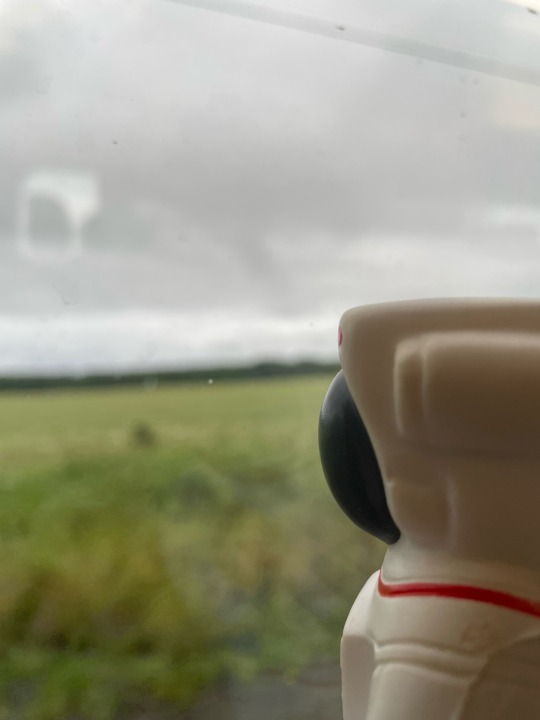
Day 1
Got another train from Inverness to Thurso, which I nearly missed. The views were very pretty, but lots of hills which seemed ominous for the walking ahead. At one point along the coast I spotted the John O’Groats trail from the train, so hopefully I’ll be back there in a few days (at least that bit looked pretty flat).
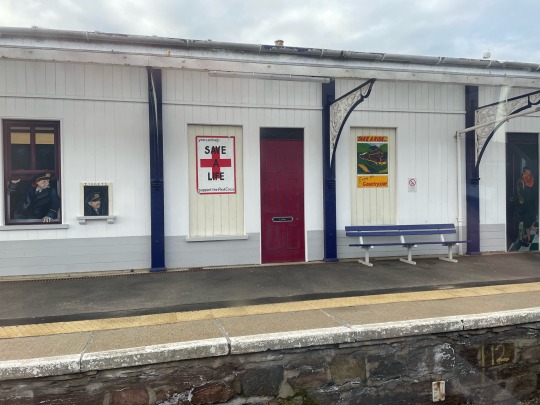

I met someone else who was waiting for the bus to John O’Groats, and they kindly took my photo next to the sign (if you’re reading this, I either forgot or didn’t ask your name, sorry). I also bought a postcard. After that the only thing to do was start walking.
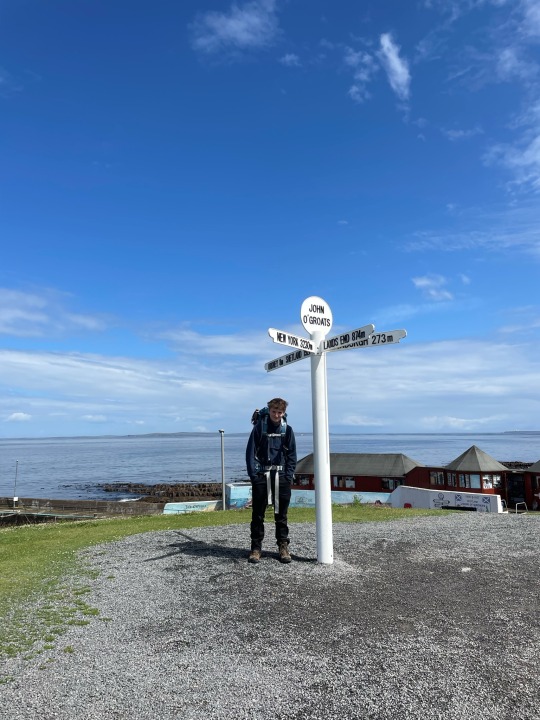
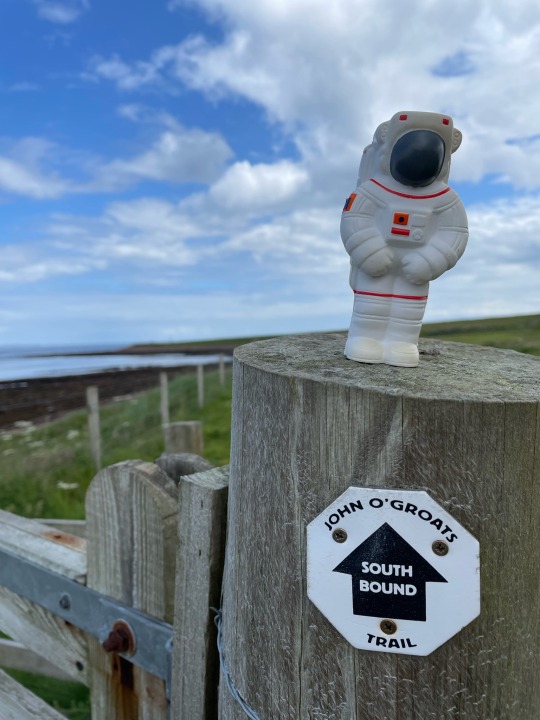
I didn’t walk particularly far today but I’m not too worried as the next few sections are pretty short. The views were amazing all day, and I found a beautiful place to pitch my tent right next to the sea. Pitching a tent while it’s raining and you’re having a nosebleed is not an experience I would recommend, but the tent didn’t fall down so it was still a success.
I ate “ready to eat” vegetable chilli with rice for dinner. It was alright, 6.5/10 maybe 7/10 because it was hot. I’ll let you know how the other types of vacuum sealed food I brought compare.
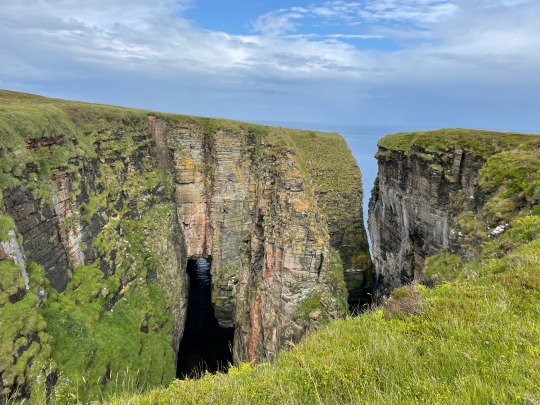
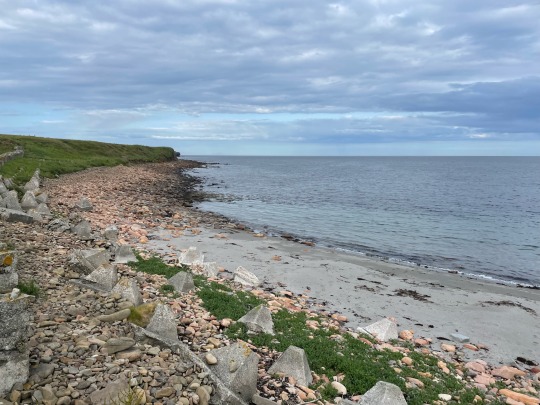
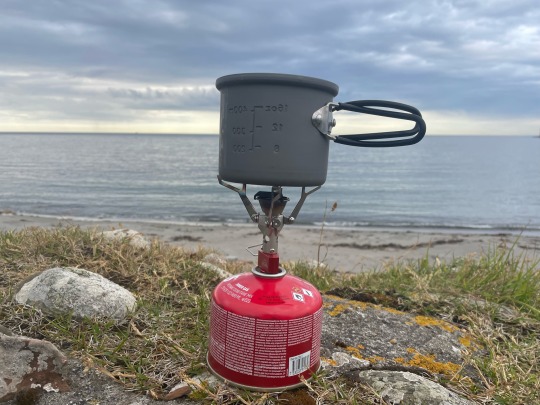
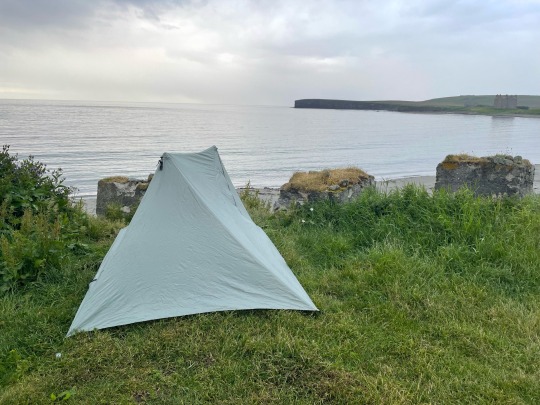
6 notes
·
View notes
Text
Lords Vote
On: Water (Special Measures) Bill [HL]
Lord Cromwell moved Motion 1A, as an amendment to the motion that this House do agree with the Commons in their Amendment 1, to leave out from “House” to end and insert “do disagree with the Commons in their Amendment 1 and do propose Amendment 1B to the words so restored to the Bill— 1B Clause 1, page 2, line 8, at end insert “, and to present such information on structuring and debt prominently, including on the website of the undertaker, in a format that can be readily accessed and understood, including by bill payers.”” The House divided:
Ayes: 168 (69.0% Con, 22.0% LD, 7.7% XB, 0.6% UUP, 0.6% Green) Noes: 112 (99.1% Lab, 0.9% ) Absent: ~575
Likely Referenced Bill: Water (Special Measures) Bill [HL]
Description: A Bill to make provision about the regulation, governance and special administration of water companies.
Originating house: Lords Current house: Lords Bill Stage: Consideration of Commons amendments
Individual Votes:
Ayes
Conservative (116 votes)
Agnew of Oulton, L. Anelay of St Johns, B. Barran, B. Bates, L. Bellingham, L. Berridge, B. Biggar, L. Blencathra, L. Bloomfield of Hinton Waldrist, B. Booth, L. Booth-Smith, L. Borwick, L. Brady, B. Bray of Coln, B. Browning, B. Caine, L. Cameron of Lochiel, L. Coffey, B. Courtown, E. Davies of Gower, L. De Mauley, L. Duncan of Springbank, L. Eaton, B. Effingham, E. Elliott of Mickle Fell, L. Evans of Bowes Park, B. Evans of Rainow, L. Fookes, B. Forsyth of Drumlean, L. Foster of Oxton, B. Fuller, L. Garnier, L. Gascoigne, L. Glenarthur, L. Godson, L. Goldie, B. Goodman of Wycombe, L. Goschen, V. Grayling, L. Grimstone of Boscobel, L. Hamilton of Epsom, L. Harlech, L. Herbert of South Downs, L. Holmes of Richmond, L. Horam, L. Howard of Rising, L. Howell of Guildford, L. Hunt of Wirral, L. Jackson of Peterborough, L. Jamieson, L. Jenkin of Kennington, B. Johnson of Lainston, L. Kempsell, L. Lamont of Lerwick, L. Lawlor, B. Leicester, E. Lexden, L. Liverpool, E. Magan of Castletown, L. Mancroft, L. Manzoor, B. Markham, L. McColl of Dulwich, L. McInnes of Kilwinning, L. McIntosh of Pickering, B. McLoughlin, L. Minto, E. Monckton of Dallington Forest, B. Morris of Bolton, B. Mott, L. Moylan, L. Moynihan of Chelsea, L. Moynihan, L. Murray of Blidworth, L. Nash, L. Neville-Jones, B. Neville-Rolfe, B. Newlove, B. Owen of Alderley Edge, B. Penn, B. Pickles, L. Pidding, B. Popat, L. Porter of Spalding, L. Rawlings, B. Reay, L. Redfern, B. Remnant, L. Robathan, L. Roborough, L. Sanderson of Welton, B. Sandhurst, L. Scott of Bybrook, B. Seccombe, B. Sharma, L. Sharpe of Epsom, L. Sherbourne of Didsbury, L. Shinkwin, L. Smith of Hindhead, L. Stedman-Scott, B. Stowell of Beeston, B. Strathcarron, L. Taylor of Holbeach, L. Trenchard, V. True, L. Tugendhat, L. Udny-Lister, L. Vere of Norbiton, B. Verma, B. Waldegrave of North Hill, L. Wharton of Yarm, L. Williams of Trafford, B. Wolfson of Tredegar, L. Wyld, B. Young of Cookham, L. Younger of Leckie, V.
Liberal Democrat (37 votes)
Addington, L. Bakewell of Hardington Mandeville, B. Bonham-Carter of Yarnbury, B. Brinton, B. Clement-Jones, L. Dholakia, L. Featherstone, B. Foster of Bath, L. Garden of Frognal, B. German, L. Goddard of Stockport, L. Grender, B. Hamwee, B. Harris of Richmond, B. Humphreys, B. Hussain, L. Kramer, B. Newby, L. Northover, B. Pidgeon, B. Pinnock, B. Purvis of Tweed, L. Razzall, L. Russell, E. Scriven, L. Sharkey, L. Sheehan, B. Stoneham of Droxford, L. Storey, L. Suttie, B. Thomas of Gresford, L. Thomas of Winchester, B. Thornhill, B. Thurso, V. Tope, L. Wallace of Saltaire, L. Walmsley, B.
Crossbench (13 votes)
Aberdare, L. Anderson of Ipswich, L. Colville of Culross, V. Cromwell, L. Falkner of Margravine, B. Finlay of Llandaff, B. Freeman of Steventon, B. Hampton, L. Hogan-Howe, L. Hunt of Bethnal Green, B. Meacher, B. O'Loan, B. Pannick, L.
Ulster Unionist Party (1 vote)
Empey, L.
Green Party (1 vote)
Bennett of Manor Castle, B.
Noes
Labour (111 votes)
Adams of Craigielea, B. Anderson of Stoke-on-Trent, B. Anderson of Swansea, L. Andrews, B. Armstrong of Hill Top, B. Ashton of Upholland, B. Bach, L. Barber of Ainsdale, L. Bassam of Brighton, L. Beamish, L. Beckett, B. Berkeley, L. Blake of Leeds, B. Blower, B. Blunkett, L. Boateng, L. Brennan of Canton, L. Browne of Ladyton, L. Campbell-Savours, L. Carberry of Muswell Hill, B. Chapman of Darlington, B. Clark of Windermere, L. Coaker, L. Collins of Highbury, L. Curran, B. Davies of Brixton, L. Donaghy, B. Drake, B. Evans of Sealand, L. Faulkner of Worcester, L. Foulkes of Cumnock, L. Gale, B. Golding, B. Goudie, B. Grantchester, L. Griffin of Princethorpe, B. Grocott, L. Hain, L. Hannett of Everton, L. Hanson of Flint, L. Hanworth, V. Harman, B. Harris of Haringey, L. Hayman of Ullock, B. Hayter of Kentish Town, B. Hazarika, B. Healy of Primrose Hill, B. Hendy of Richmond Hill, L. Hendy, L. Hermer, L. Hollick, L. Howarth of Newport, L. Hunt of Kings Heath, L. Jones of Penybont, L. Jones of Whitchurch, B. Jones, L. Kennedy of Cradley, B. Kennedy of Southwark, L. Kinnock, L. Knight of Weymouth, L. Lawrence of Clarendon, B. Layard, L. Lemos, L. Leong, L. Levitt, B. Liddell of Coatdyke, B. Lister of Burtersett, B. Livermore, L. McConnell of Glenscorrodale, L. McIntosh of Hudnall, B. McNicol of West Kilbride, L. Mendelsohn, L. Merron, B. Moraes, L. Morris of Yardley, B. Murphy of Torfaen, L. Nye, B. O'Grady of Upper Holloway, B. Osamor, B. Pitkeathley, B. Ponsonby of Shulbrede, L. Ramsay of Cartvale, B. Ramsey of Wall Heath, B. Raval, L. Reid of Cardowan, L. Ritchie of Downpatrick, B. Robertson of Port Ellen, L. Royall of Blaisdon, B. Sahota, L. Shamash, L. Sikka, L. Smith of Basildon, B. Smith of Malvern, B. Spellar, L. Stansgate, V. Taylor of Bolton, B. Taylor of Stevenage, B. Timpson, L. Touhig, L. Tunnicliffe, L. Twycross, B. Vallance of Balham, L. Warwick of Undercliffe, B. Watson of Invergowrie, L. Watts, L. Wheeler, B. Whitaker, B. Whitty, L. Winterton of Doncaster, B. Wood of Anfield, L. Young of Old Scone, B.
Non-affiliated (1 vote)
Austin of Dudley, L.
0 notes
Text
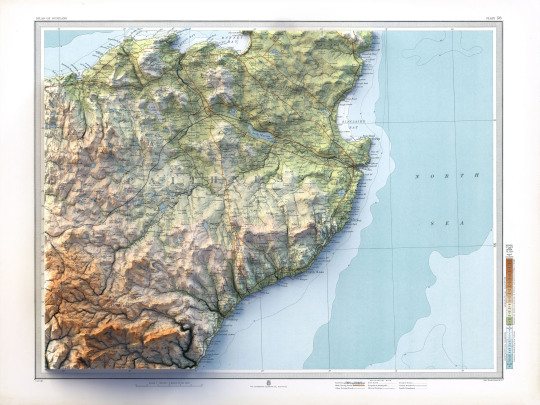
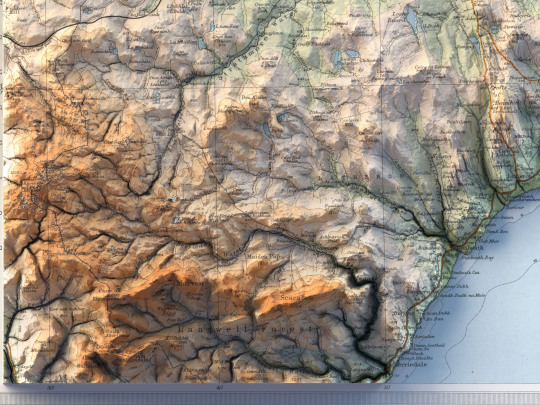
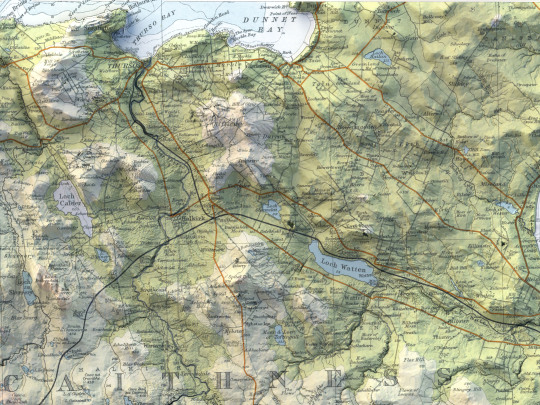

It is Thurso/Wick! We are in the Highland for the second time, but also in the northernmost city of Scotland. Map was published by John Bartholomew & Son in the Survey Atlas of Scotland in 1912. I personally visited Thurso and Wick during a trip to Scotland ten years ago. We spent a few days there walking and eating. All the maps you will see in these series devoted to Scotland are places visited during this trip! Also for this reason we would like to map more sheet of the Atlas, in order to cover more places we visited. Credits to NLS (Reproduced with the permission of the National Library of Scotland).
If you like our work, want to see our daily updates (or want to say hello to our studio), consider to follow our Instagram or Twitter account. Otherwise if are interested in our prints or have a custom request check our shop.
#maps#mapart#mapdesign#shadedrelief#mapstagram#mapporn#cartography#designmap#naturegeography#scotlandvibes#scotland#scotlandlover#scotlandtravel#scotlandexplore#scotlandhighlands#travellover#greatbritain🇬🇧#capturingbritain#unitedkingdom🇬🇧#datavisualization#qgis#blender3d#dataviz#b3d#vizart#atlasmountains#thurso#wick#caithness
1 note
·
View note
Text

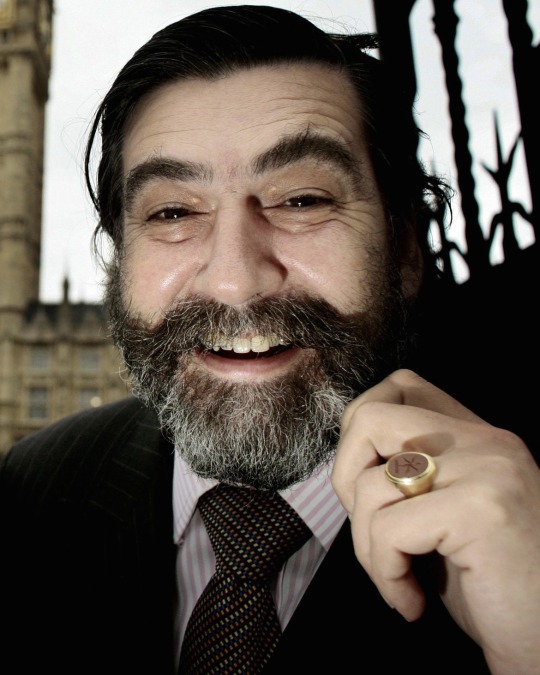

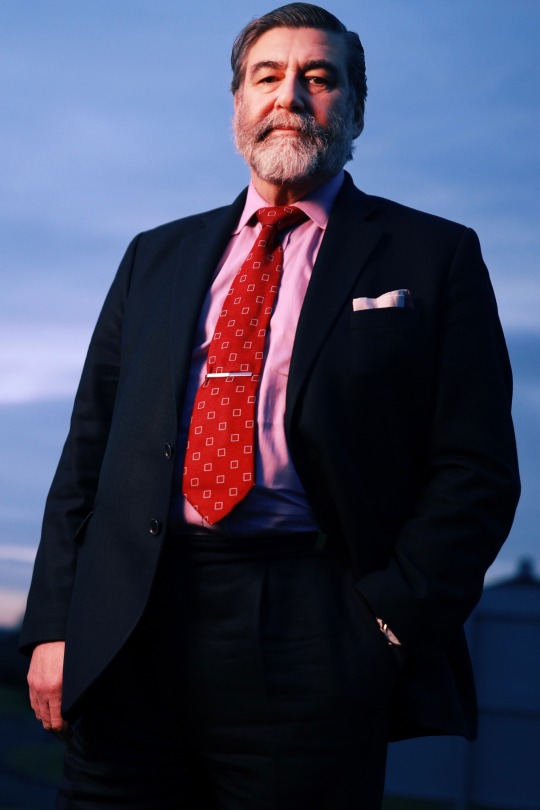
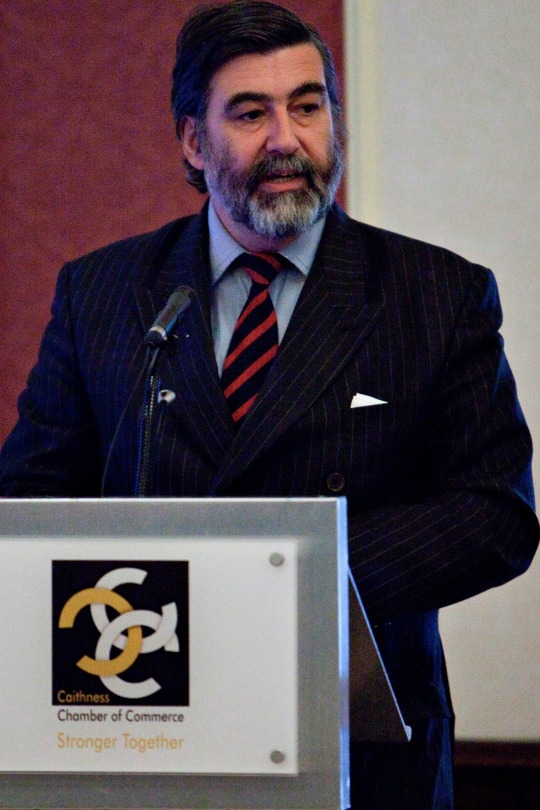
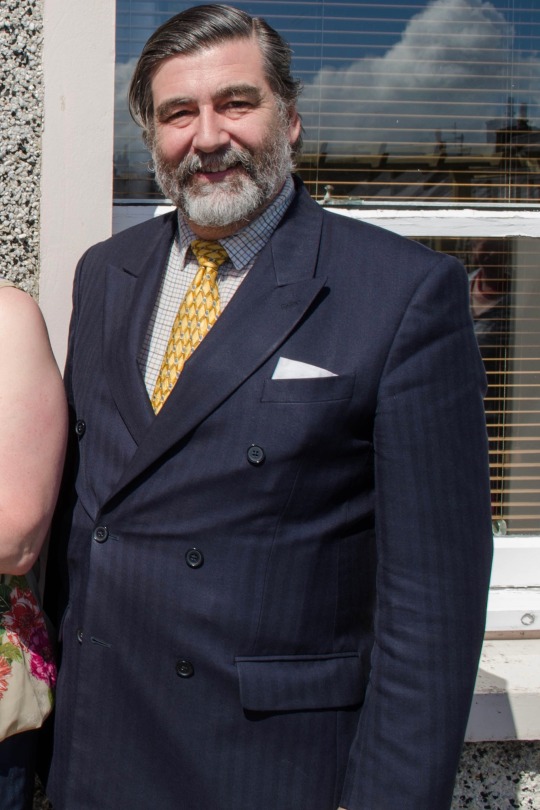
John Thurso
#daddy#daddylove#daddywiki#handsome daddy#sexy daddy#daddies#daddyoftheday#mature daddy#grey daddy#suited daddy#handsome#hairy daddy#silver daddy#daddybear#suit & tie#suit and tie#suiteddaddies#suited grandpa#John Thurso#member of parliament
86 notes
·
View notes
Note
since its october, can you give us a snippet of the jafitd sequel? 😁
no one's going to see this right now but shjksls it's fine. here's a snippet that ended up being way longer than i anticipated (1040 words):
--
“Jesus, fuck, it’s cold,” Louis whines through his teeth, huddling closer to Harry in hopes of leeching some of his warmth. It’s so cold that he can hardly breathe, shivering helplessly against the brutal wind. It’s absolutely brutal, whipping through the fabric of his coat and chilling him to the bones. “How much longer?” he calls out behind him.
Fletcher, their ferryman, makes no sign as having heard him. Louis can’t even fault him – it’s impossible to hear anything over the howling gales around them. The boat lurches to the side and Louis nearly stumbles, heart leaping into his throat. From the moment Louis saw the rickety old fishing boat back at the docks, he had felt a feeling of dread take root in him. The boat looked like it could fall apart at a moment’s notice and now Louis is trapped on its frail body as they venture across the Bay of Skaill, the sky churning above them like a growing storm.
Oh, because it is a growing storm. Fletcher pointed it out casually to them once they were already ten minutes from shore, and Louis has spent the entirety of their journey unable to forget it. Even more worrying, Louis is pretty sure that if the boat were to tip over right now, he wouldn’t have a chance. He’s practically dead on his feet, exhausted after a long day of nonstop traveling.
It didn’t start out that way, of course. After an almost six hour long train ride from London to Edinburgh followed by an hour and a half flight to Wick John O’Groats airport and then another hour by bus to Thurso, Louis was tired but not terribly so. Except, that was only the beginning.
After spending a couple hours walking around Thurso and enjoying the scenery, they boarded the ferry in Scrabster and enjoyed a ninety minute ride across the Pentland Firth to Stromland. They weren’t the only people on the ride, and Harry inevitably struck up a conversation with the couple seated by them. “What’s in Orkney for you two?” the lady had asked curiously. She was British like them, and she and her husband were just along for the tour.
Harry had simply smiled and answered, “Ghosts.”
Flash forward another quick bus ride from Stromness to Skaill, Louis and Harry were met by Fletcher Armstrong who led them on a trek to where his boat, his beloved Queen Ainsley, was docked at the southern curve of the bay. He was hired specially to ferry them across to the north where their destination lies. It is not a location that can be reached from the mainland, their client had said. I’ll send a boat for you myself.
When Louis heard that, he had thought nothing of it. Blaine Macgregor, the man who reached out to their agency a month back about this case, was undoubtedly wealthy and important. That’s the type of person who inherits a literal castle, after all – potential hauntedness aside. When he said the words, “I’ll send a boat for you myself,” out loud, Louis had shaken his head in disbelief. Rich people, for fuck’s sake. They sounded ridiculous. Still, he felt assured that they’d have a safe method of transportation to their destination. In fact, he had even pictured a nice little boat ride in which he’d hold hands with his perfect boyfriend and enjoy the sights.
Instead, it feels like he’s standing on the vessel of hell. Destination: death.
The arm around his shoulders pulls him closer to a body. Harry says something that breaks Louis from his stupor, but the exact words get lost in the raging wind just like everything else.
Louis cranes his head up, staring at his boyfriend in confusion. “What?”
Harry repeats himself, practically shouting out loud. His nose is bright red from the cold, hair an absolute tangled mess. Yet somehow he manages to still look attractive – it’d probably piss Louis off if he wasn’t madly in love with him. This time the only thing Louis is able to catch from his attempt is ‘you’ and ‘okay?’ but it’s enough to piece together the question.
“I’m just dandy, thanks,” he yells back, voice raw from the effort but also the numbing cold. Of course, right as he says it, the boat lurches violently again. He nearly goes crashing over the side of the boat, gripping Harry’s arm for dear life. “Except for the part where we’re actually going to die,” he shouts through his teeth. It’s absolutely mind-boggling to him how Venus is managing to sleep through this journey of terror, but she is indeed napping peacefully in the carrier Louis has clutched painfully tight in his arms, oblivious to his panicking.
“What?” Harry shouts, clearly not hearing him.
“Forget it,” Louis screeches, squeezing his eyes shut. Oh how he wishes he could portal to places he’s never been. He thinks of the castle he spent an embarrassing amount of time scoping out on Google Earth. It’s not the first time he’s been invited to stay in one for a case, but there’s something about Verron Castle and all its mysteries that has him completely enchanted.
“Lou, look,” Harry yells over the wind then, a bit of awe registering in his voice.
Louis turns to follow his gaze, squinting his eyes through what seems to be a vast sea of grey. His breath catches in his throat. Glimpses of stone are all he sees at first, then a tower emerges from the fog, standing tall and proud in the midst of gloom. It’s followed by more turrets, then stone battlements overgrown with ivy and moss, and then suddenly there it is.
Verron Castle appears like a jewel in the middle of the storm, cradling the edge of the cliffside in all its dreamy glory. It’s massive and magnificent, like a portal to the past standing before his very eyes. It is something out of a storybook, and Louis and Harry are going to spend a month within its grand, gothic walls.
As Louis stares in absolute wonder, he almost forgets that he’s on the boat ride of death. Or, he forgets until the universe remembers that it hates their guts and unleashes a torrent of rain upon their heads.
--
let me know what you think!! so excited about this one shjkslf
39 notes
·
View notes
Text

John Thurso
#suitdaddy#suiteddaddy#suit and tie#men in suits#suited daddy#suited grandpa#suitedman#suit daddy#suitfetish#double breasted#buisness suit#suitedmen#british man#british men#Scottish man#Scottish men#member of parliament#house of lords#John Thurso#Lord Thurso
34 notes
·
View notes
Text

JOHN CONSTANTINE: HELLBLAZER #11
Written by SIMON SPURRIER
Art by AARON CAMPBELL
Cover by JOHN PAUL LEON
A message from Clem Thurso, the most virulently bigoted politician in the UK, unexpectedly sends John on a journey deep into the heart of occult evil -- and down into a chamber below Parliament where something truly unspeakable waits...
32 pages, $3.99, in stores on Oct. 27.
47 notes
·
View notes
Photo

JOHN CONSTANTINE: HELLBLAZER #11
written by SIMON SPURRIER art by AARON CAMPBELL cover by JOHN PAUL LEON ON SALE 10/27/20 $3.99 US | 32 PAGES | FC DC BLACK LABEL | AGES 17+ A message from Clem Thurso, the most virulently bigoted politician in the UK, unexpectedly sends John on a journey deep into the heart of occult evil—and down into a chamber below Parliament where something truly unspeakable waits…
18 notes
·
View notes
Text
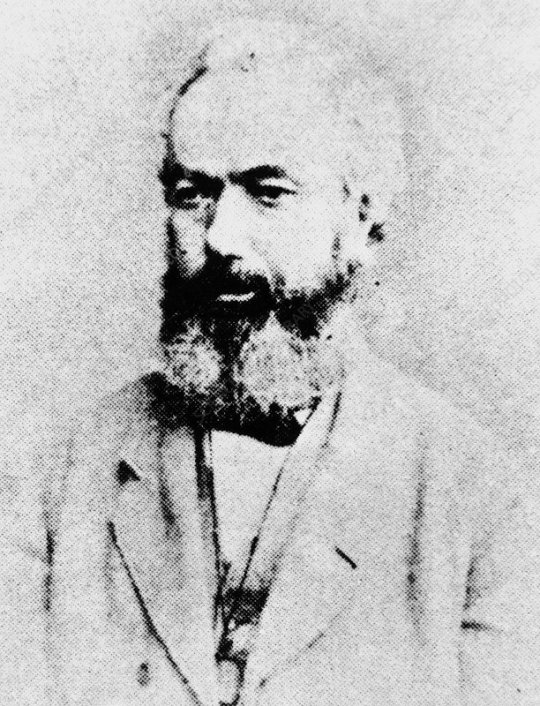




On January 2nd 1877 Alexander Bain, the Scottish inventor died at Kirkintilloch.
Bain was one of the most prolific inventors of the 19th century, and is one of the least remembered. His inventions are all the more remarkable given his background.
"When the lecture was over, and the audience were leaving, a few gentlemen accompanied the lecturer, and conversed with him on the subjects of the lecture. There was a humble lad walking behind them, and listening attentively to what was said … he never forgot the lecture, nor the subsequent conversation.”
After nearly seven years of clockmaking apprenticeship, he left the north of Scotland, briefly for Edinburgh, and then London.
Working in London, Bain went to evening lectures and saw some impractical clocks that used static electricity to maintain the swing of the pendulum. He thought he could do better. By the middle of 1840 he had made a clock powered by electric current, as well as a ‘printing telegraph’. He also thought “to make a common clock transmit its time to other distant clocks…” In Bain’s first electric clock, the pendulum bob was an electromagnet swinging between two permanent magnets. In his ‘printing telegraph’, the character for transmission was selected by stopping a moving pointer at the correct location on a labelled disc. In the receiver, the printing type-wheel was rotated into position by a clock escapement released by an electromagnet, one tooth at a time, by the appropriate number of received electrical pulses.
Bain displayed his electric clock at the Polytechnic Institution, and with John Barwise, a chronometer maker, and they applied for a patent in October 1840. The next month, Charles Wheatstone, professor of physics at King’s College London, demonstrated an electric clock to the Royal Society, claiming to have invented it. Bain’s patent, ‘Improvements in the Application of driving power to Clocks and Time Pieces’ was granted in January 1841, and a furious public dispute ensued.
Bain’s cause was supported by many, including John Finlaison (a Treasury civil servant, and Actuary of the National Debt.) By coincidence, Finlaison hailed from Thurso, and had been impressed by a demonstration of Bain’s printing telegraph:
It wasn't only the electric clock he is famous for, he then worked on an experimental facsimile machine in 1843 to 1846/ He used a clock to synchronise the movement of two pendulums for line-by-line scanning of a message. For transmission, Bain applied metal pins arranged on a cylinder made of insulating material. An electric probe that transmitted on-off pulses then scanned the pins. The message was reproduced at the receiving station on electrochemically sensitive paper impregnated with a chemical solution similar to that developed for his chemical telegraph. In his patent description dated 27 May 1843 for “improvements in producing and regulating electric currents and improvements in timepieces, and in electric printing, and signal telegraphs,” he claimed that “a copy of any other surface composed of conducting and non-conducting materials can be taken by these means”. This was way ahead of his time!
In 1844 Bain had married Matilda Bowie, the widowed sister-in-law of his greatest champion, John Finlaison, and moved his business to Edinburgh. He and his wife had five children to add to Matilda’s daughter from her first marriage.
Bain won a contract from the Glasgow and Edinburgh Railway to construct a telegraph line along their route, 46 miles long. The price quoted was £50 per mile; Cooke and Wheatstone were charging the Great Western Railway £250 per mile. Finlaison loaned £3,000 to the project and the finished system proved the capability of time distribution, with the master electric pendulum clock in Edinburgh transmitting to a "slave" clock in Glasgow.
It wasn't all plain sailing for the intrepid Scot, he traelled to America with his "electric telegraph" plans, but Samuel Morse had already built a telegraph between Baltimore and Washington D.C so was ahead in the game. After applying for a patent Morse challenged him in the courts, saying his patents already covered what Bain had laid out, it went all the way to the suoreme courts and Morse won, although the unimplemented patent claims of Morse were rejected, this was scant comfort to Bain, who left America and had to file for bankrupcy back home, the cost of his failed venture in the Americas cost him dearly.
Bain ended up pretty much back where he started, working for a watchmaker in Glasgow, repairing clocks for a living. One of his customers was the University’s William Thomson (later Lord Kelvin) who recognised Bain’s genius and his plight. Thomson arranged a grant of £150 from the Royal Society, and successfully petitioned the Gladstone government to award Bain a Civil List pension of £80 per year.
Bain died on this day in 1877, cheated of fame and fortune by bad luck and poor choices. Aside from electric clocks and the chemical telegraph, he patented many other inventions, including a fire alarm; a marine depth sounder; a system for recording ships’ direction and speed at sea; a device for producing punched tape and a piano for playing the tape remotely; a current regulator for voltaic cells; a drinking fountain tap operated by pressing the receptacle on a lever, and perhaps too fondly, a device for drawing a measure of liquid from a container, similar to a bar optic for spirits.
Alexander Bain is buried in the Auld Aisle Cemetery, Kirkintilloch.
A Wetherspoons pub in Wick, close to where Alexander Bain served his apprenticeship, is now named after the inventor, it is also the most northerly Wetherspoons in the country. Also, as a tribute to his inventions, the main BT building in Glasgow is named Alexander Bain House.
There is also a commemorative plaque to Bain at his former workshop on Hanover Street in Edinburgh as seen in the pics.
As usual; I have slimmed this account of Bain's life down, if you want to read the full story check out this link https://www.slhf.org/sites/default/files/publications/slhf12_alexanderbain.pdf
7 notes
·
View notes
Text
Lords Vote
On: Institute for Apprenticeships and Technical Education (Transfer of Functions etc) Bill [HL]
Baroness Barran moved amendment 15, in clause 11, page 4, line 22, to leave out “on such day as the Secretary of State may by regulations appoint” and insert “at the end of the period of one year beginning on the day on which Skills England is created”. The House divided:
Ayes: 183 (69.4% Con, 21.3% LD, 4.4% XB, 2.2% DUP, 1.6% , 0.5% UUP, 0.5% Green) Noes: 127 (94.5% Lab, 4.7% XB, 0.8% ) Absent: ~545
Likely Referenced Bill: Institute for Apprenticeships and Technical Education (Transfer of Functions etc) Bill [HL]
Description: A bill to transfer the functions of the Institute for Apprenticeships and Technical Education, and its property, rights and liabilities, to the Secretary of State; to abolish the Institute; and to make amendments relating to the transferred functions.
Originating house: Lords Current house: Lords Bill Stage: 3rd reading
Individual Votes:
Ayes
Conservative (127 votes)
Agnew of Oulton, L. Altrincham, L. Anelay of St Johns, B. Barran, B. Bates, L. Bellingham, L. Berridge, B. Bethell, L. Biggar, L. Blencathra, L. Bloomfield of Hinton Waldrist, B. Booth, L. Booth-Smith, L. Borwick, L. Brady, B. Bray of Coln, B. Browning, B. Caine, L. Cameron of Lochiel, L. Choudrey, L. Clarke of Nottingham, L. Coffey, B. Colgrain, L. Courtown, E. Davies of Gower, L. De Mauley, L. Duncan of Springbank, L. Eaton, B. Effingham, E. Elliott of Mickle Fell, L. Evans of Bowes Park, B. Evans of Rainow, L. Fookes, B. Forsyth of Drumlean, L. Foster of Oxton, B. Fuller, L. Garnier, L. Gascoigne, L. Glenarthur, L. Godson, L. Goldie, B. Goodman of Wycombe, L. Goschen, V. Grayling, L. Grimstone of Boscobel, L. Hamilton of Epsom, L. Harlech, L. Herbert of South Downs, L. Holmes of Richmond, L. Horam, L. Howard of Rising, L. Howell of Guildford, L. Hunt of Wirral, L. Jackson of Peterborough, L. Jamieson, L. Jenkin of Kennington, B. Johnson of Lainston, L. Kempsell, L. Laing of Elderslie, B. Lamont of Lerwick, L. Lawlor, B. Lea of Lymm, B. Leicester, E. Lexden, L. Liverpool, E. Magan of Castletown, L. Mancroft, L. Manzoor, B. Markham, L. McColl of Dulwich, L. McInnes of Kilwinning, L. McIntosh of Pickering, B. McLoughlin, L. Meyer, B. Minto, E. Monckton of Dallington Forest, B. Morris of Bolton, B. Mott, L. Moylan, L. Moynihan of Chelsea, L. Moynihan, L. Nash, L. Neville-Jones, B. Neville-Rolfe, B. Newlove, B. Noakes, B. O'Neill of Bexley, B. Owen of Alderley Edge, B. Penn, B. Pickles, L. Pidding, B. Polak, L. Popat, L. Porter of Spalding, L. Rawlings, B. Reay, L. Redfern, B. Remnant, L. Risby, L. Robathan, L. Roborough, L. Sanderson of Welton, B. Sandhurst, L. Sater, B. Scott of Bybrook, B. Seccombe, B. Sharma, L. Sharpe of Epsom, L. Sherbourne of Didsbury, L. Shinkwin, L. Smith of Hindhead, L. Stedman-Scott, B. Stowell of Beeston, B. Strathcarron, L. Taylor of Holbeach, L. Trenchard, V. True, L. Tugendhat, L. Udny-Lister, L. Vere of Norbiton, B. Verma, B. Waldegrave of North Hill, L. Wharton of Yarm, L. Williams of Trafford, B. Wolfson of Tredegar, L. Young of Cookham, L. Younger of Leckie, V.
Liberal Democrat (39 votes)
Addington, L. Bakewell of Hardington Mandeville, B. Bonham-Carter of Yarnbury, B. Brinton, B. Clement-Jones, L. Dholakia, L. Featherstone, B. Foster of Bath, L. Garden of Frognal, B. German, L. Goddard of Stockport, L. Grender, B. Hamwee, B. Harris of Richmond, B. Humphreys, B. Hussain, L. Hussein-Ece, B. Kramer, B. Newby, L. Northover, B. Pidgeon, B. Pinnock, B. Purvis of Tweed, L. Razzall, L. Russell, E. Sharkey, L. Sheehan, B. Stoneham of Droxford, L. Storey, L. Strasburger, L. Suttie, B. Thomas of Gresford, L. Thomas of Winchester, B. Thornhill, B. Thurso, V. Tope, L. Tyler of Enfield, B. Wallace of Saltaire, L. Walmsley, B.
Crossbench (8 votes)
Aberdare, L. Colville of Culross, V. Falkner of Margravine, B. Finlay of Llandaff, B. Freeman of Steventon, B. Hampton, L. Ravensdale, L. Wolf of Dulwich, B.
Democratic Unionist Party (4 votes)
Browne of Belmont, L. McCrea of Magherafelt and Cookstown, L. Morrow, L. Weir of Ballyholme, L.
Non-affiliated (3 votes)
Faulks, L. Foster of Aghadrumsee, B. Fox of Buckley, B.
Ulster Unionist Party (1 vote)
Empey, L.
Green Party (1 vote)
Bennett of Manor Castle, B.
Noes
Labour (120 votes)
Adams of Craigielea, B. Anderson of Stoke-on-Trent, B. Anderson of Swansea, L. Andrews, B. Armstrong of Hill Top, B. Ashton of Upholland, B. Bach, L. Barber of Ainsdale, L. Bassam of Brighton, L. Beamish, L. Beckett, B. Berkeley, L. Blake of Leeds, B. Blower, B. Blunkett, L. Boateng, L. Bradley, L. Brennan of Canton, L. Browne of Ladyton, L. Campbell-Savours, L. Carberry of Muswell Hill, B. Chandos, V. Chapman of Darlington, B. Clark of Windermere, L. Coaker, L. Collins of Highbury, L. Curran, B. Davidson of Glen Clova, L. Davies of Brixton, L. Donaghy, B. Drake, B. Eatwell, L. Evans of Sealand, L. Faulkner of Worcester, L. Foulkes of Cumnock, L. Gale, B. Golding, B. Goudie, B. Grantchester, L. Griffin of Princethorpe, B. Grocott, L. Hain, L. Hannett of Everton, L. Hanson of Flint, L. Hanworth, V. Harman, B. Harris of Haringey, L. Hayman of Ullock, B. Hayter of Kentish Town, B. Hazarika, B. Healy of Primrose Hill, B. Hendy of Richmond Hill, L. Hendy, L. Hermer, L. Hollick, L. Howarth of Newport, L. Hunt of Kings Heath, L. Jones of Penybont, L. Jones of Whitchurch, B. Jones, L. Kennedy of Cradley, B. Kennedy of Southwark, L. Kennedy of The Shaws, B. Kinnock, L. Knight of Weymouth, L. Lawrence of Clarendon, B. Layard, L. Lemos, L. Leong, L. Levitt, B. Liddell of Coatdyke, B. Lister of Burtersett, B. Livermore, L. McConnell of Glenscorrodale, L. McIntosh of Hudnall, B. McNicol of West Kilbride, L. Mendelsohn, L. Merron, B. Moraes, L. Morris of Yardley, B. Murphy of Torfaen, L. Nye, B. O'Grady of Upper Holloway, B. Osamor, B. Pitkeathley, B. Ponsonby of Shulbrede, L. Ramsay of Cartvale, B. Ramsey of Wall Heath, B. Raval, L. Reid of Cardowan, L. Ritchie of Downpatrick, B. Robertson of Port Ellen, L. Rooker, L. Royall of Blaisdon, B. Sahota, L. Shamash, L. Sikka, L. Smith of Basildon, B. Smith of Malvern, B. Snape, L. Spellar, L. Stansgate, V. Taylor of Bolton, B. Taylor of Stevenage, B. Timpson, L. Touhig, L. Tunnicliffe, L. Twycross, B. Vallance of Balham, L. Warwick of Undercliffe, B. Watson of Invergowrie, L. Watson of Wyre Forest, L. Watts, L. Wheeler, B. Whitaker, B. Whitty, L. Winterton of Doncaster, B. Wood of Anfield, L. Young of Norwood Green, L. Young of Old Scone, B.
Crossbench (6 votes)
Anderson of Ipswich, L. Green of Hurstpierpoint, L. Hogan-Howe, L. Meacher, B. O'Loan, B. Pannick, L.
Non-affiliated (1 vote)
Austin of Dudley, L.
0 notes
Photo

JOHN CONSTANTINE: HELLBLAZER #11 written by SIMON SPURRIER art by AARON CAMPBELL cover by JOHN PAUL LEON ON SALE 10/27/20 $3.99 US | 32 PAGES | FC DC BLACK LABEL | AGES 17+ A message from Clem Thurso, the most virulently bigoted politician in the UK, unexpectedly sends John on a journey deep into the heart of occult evil—and down into a chamber below Parliament where something truly unspeakable waits…
7 notes
·
View notes
Link
Focus on Caithness heritage sites in Thurso Camera Club challenge, including images of John O'Groats mill, by Gareth Watkins.
1 note
·
View note